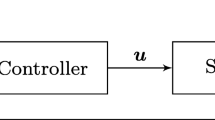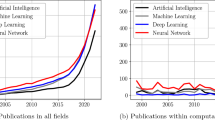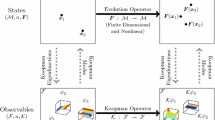Abstract
Iterative learning control is now well established for linear and nonlinear dynamics in terms of both the underlying theory and experimental application. This approach is specifically targeted at cases where the same operation is repeated over a finite duration with resetting between successive repetitions. Each repetition or pass is known as a trial and the key idea is to use information from previous trials to update the control input used on the current one with the aim of improving performance from trial-to-trial. In this paper, new results on ILC applied to systems that arise from discretization of bi-variate partial differential equations describing spatio-temporal systems or processes are developed. Theses are based on Crank-Nicholson discretization of the governing partial differential equation, resulting in an unconditionally numerically stable approximation of the dynamics. It is also shown that this setting allows the selection of a finite number of points for sensing and actuation. The resulting control laws can be computed using Linear Matrix Inequalities (LMIs). Finally, an illustrative example is given and areas for further research are discussed.
Similar content being viewed by others
References
Ahn H.-S., Chen Y. Q., Moore K. L. (2007) Iterative learning control: brief survey and categorization. IEEE Transactions on Systems Man and Cybernetics Part C: Applications and Reviews 37(6): 1099–1121
Arimoto S., Kawamura S., Miyazaki F. (1984) Bettering operation of robots by learning. Journal of Robotic Systems 1(2): 123–140
Bristow D. A., Tharayil M., Alleyne A. G. (2006) A survey of iterative learning control. IEEE Control Systems Magazine 26(3): 96–114
Chao, X., Arastoo, R., & Schuster, E. (2009). On iterative learning control of parabolic distributed parameter systems. In Proceedings of the 17th mediterranean conference on control and automation (pp. 510–515).
Choi J., Seo B. J., Lee K. S. (2001) Constrained digital regulation of hyperbolic PDE systems: A learning control approach. Korean Journal of Chemical Engineering 18(5): 606–611
Crank J., Nicolson P. (1947) A practical method for numerical evaluation of solutions of partial differential equations of the heat-conduction type. Proceedings of the Cambridge Philosophical Society 43: 50–67
Fiory, A. T. (2001). Methods in microelectronics for rapid thermal annealing of implanted dopants. In B. L. Sopori (Ed.), 11th Workshop on crystalline silicon solar cell materials and processes (pp. 102–113).
Fornasini E., Marchesini G. (1978) Doubly indexed dynamical systems: State-space models and structural properities. Theory of Computing Systems 12(1): 59–72
Hładowski, Ł., Cai, Z., Gałkowski, K., Rogers, E., Freeman, C.T., & Lewin, P. L. (2008). Using 2D systems theory to design output signal based iterative learning control laws with experimental verification. In Proceedings of the 47th IEEE conference on decision and control (pp. 3026–3031).
Hładowski Ł., Gałkowski K., Cai Z., Rogers E., Freeman C. T., Lewin P. L. (2010) Experimentally supported 2D systems based iterative learning control law design for error convergence and performance. Control Engineering Practice 18(4): 339–348
Kurek J. E., Zaremba M. B. (1993) Iterative learning control synthesis based on 2-D system theory. IEEE Transactions on Automatic Control 38(1): 121–125
Maxwell N. D., Asokanthan S. F. (2004) Modal characteristics of a flexible beam with multiple distributed actuators. Journal of Sound and Vibration 269(1–2): 19–31
Moore, K. L., & Chen, Y. Q. (2006) Iterative learning approach to a diffusion control problem in an irrigation application. In Proceedings of the 2006 IEEE international conference on mechatronics and automation (pp. 1329–1334).
Qu Z. (2002) An iterative learning algorithm for boundary control of a stretched moving string. Automatica 38(5): 821–827
Rabenstein, R., & Steffen, P. (2009). Implicit discretization of linear partial differential equations and repetitive processes. In The 6th international workshop on multidimensional (nD) systems (nDS 2009) (pp. 1–7).
Roesser R. P. (1975) A discrete state-space model for linear image processing. IEEE Transactions on Automatic Control 20(1): 1–10
Rogers, E., Gałkowski, K., & Owens, D. H. (2007). Control systems theory and applications for linear repetitive processes, volume 349 of Lecture notes in control and information sciences. Springer.
Schaper C. D., Moslehi M. M., Saraswat K. C., Kailath T. (1994) Modeling, identification, and control of rapid thermal processing systems. Journal of the Electrochemical Society 141(11): 3200–3209
Strikwerda, R. C. (2004). Finite difference schemes and partial differential equations, SIAM.
Yueh W. C. (2005) Eigenvalues of several tridiagonal matrices. Applied Mathematics E-Notes 5: 66–74
Zhao, H. (2005). Passive, iterative, and repetitive control for flexible distributed parameter systems. PhD thesis, Department of Mechanical and Nuclear Engineering, The Pennsylvania State University.
Zhao H., Rahn C. D. (2007) Stability of damped membranes and plates with distributed inputs. Journal of Sound and Vibration 302(3): 564–576
Author information
Authors and Affiliations
Corresponding author
Additional information
This work has been partially supported by the Ministry of Science and Higher Education in Poland under the project N N514 293235.
Rights and permissions
About this article
Cite this article
Cichy, B., Gałkowski, K. & Rogers, E. Iterative learning control for spatio-temporal dynamics using Crank-Nicholson discretization. Multidim Syst Sign Process 23, 185–208 (2012). https://doi.org/10.1007/s11045-010-0132-1
Received:
Revised:
Accepted:
Published:
Issue Date:
DOI: https://doi.org/10.1007/s11045-010-0132-1




